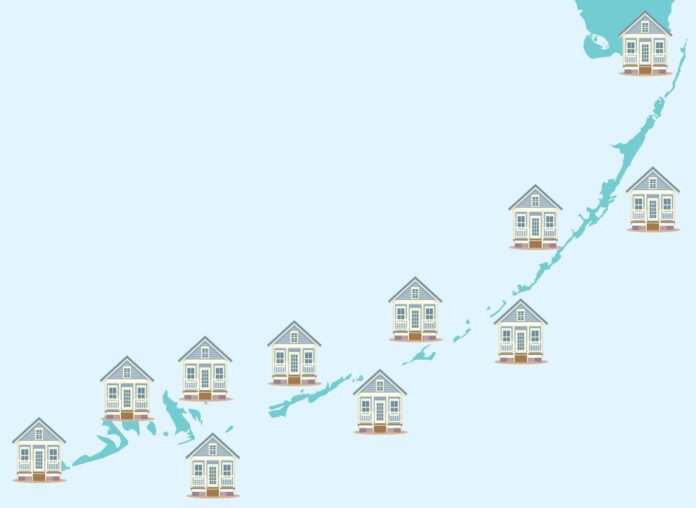Up to 900 building rights could be on their way to the Florida Keys, pending the stroke of Florida Gov. Ron DeSantis’ pen.
The units come courtesy of Senate Bill 180, which saw a flurry of amendments over the final week of Florida’s 2025 legislative session before eventual passage in near-unanimous votes of both the House and Senate on May 2.
The bill, which largely deals with emergency preparedness measures, will raise the hurricane evacuation clearance time for permanent residents of the Keys from the previous statutory mandate of 24 hours to a new threshold of 24.5 hours. The number of new allocations bestowed to Keys municipalities, it says, will be based on evacuation models run by the Florida Department of Commerce – no more than 900 total, distributed over a period of at least 10 years.
Keys jurisdictions will split the new units based on their respective numbers of vacant buildable lots, a central phrase in the prior year of debate over the future of development in the islands.
“All permits must be issued for vacant, buildable parcels, of which only one may be awarded for any individual parcel, and the distribution of which must prioritize allocations for owner-occupied residences, affordable housing and workforce housing,” the bill states.
Previous bills filed by state Rep. Jim Mooney (HB 995) and Sen. Ana Maria Rodriguez (SB 1326), made varying requests for additional building rights in the Keys. Mooney’s original bill asked for up to a 24.5-hour evacuation and 500 additional building rights over 10 years, and Rodriguez opted instead for a 26-hour evacuation and up to 3,550 more units over a minimum of 40 years. Both were later amended to settle on matching 825-unit requests with a 24.5-hour evacuation. Mooney’s bill passed the House on April 23, while Rodriguez’s bill was eventually withdrawn on May 3.
Language increasing the Keys’ hurricane evacuation time from 24 to 26 hours also appeared in former versions of Senate Bill 1730, filed by Miami-Dade’s District 38 Sen. Alexis Calatayud – but those amendments were removed from the final versions passed by the House and Senate on May 1.
Speaking with the Weekly by phone, Mooney said lawmakers were hesitant to approve bills that would grant thousands of units with few guardrails to an Area of Critical State Concern via a 26-hour evacuation.
“The average person would go, ‘what’s two hours?’ But two hours has a lot of ramifications,” Mooney said. “After speaking with (SB 180 sponsor) Senator Nick DiCeglie, he agreed to take up our language, and it was pretty smooth after that.”
If signed, SB 180, by most accounts, would greatly aid Keys governments in staving off takings cases from property owners of buildable lots who could have been denied the ability to do so when the island chain exhausted its supply of building rights.
However, the new bill’s emphasis on providing one right per buildable lot leaves questions still to be answered for property owners whose lots could theoretically accommodate more than one building right, and for islands seeking to construct multiunit affordable housing complexes.
Debate during the past year among local leaders and residents over future development in the islands repeatedly returned to a discussion of evacuation safety, environmental concerns and a determination of the number of truly buildable vacant lots remaining in the Keys – the most likely starting point for takings cases, the cost of which could be paid by Keys taxpayers.
However, resolutions and requests to state lawmakers approved by Marathon and Monroe County in late 2024 supported extra units for affordable housing developments, along with a “borrow-forward” provision that could accelerate construction of these developments by allowing an award of building rights from future years.
Mooney called the bill “a victory for Monroe County.”
“The county and cities should be trying to acquire more money to acquire more land and bring this (takings cases) thing to a close, once and for all,” he said. “The reality is that 90 units a year over 120 miles is not urban sprawl.”




















